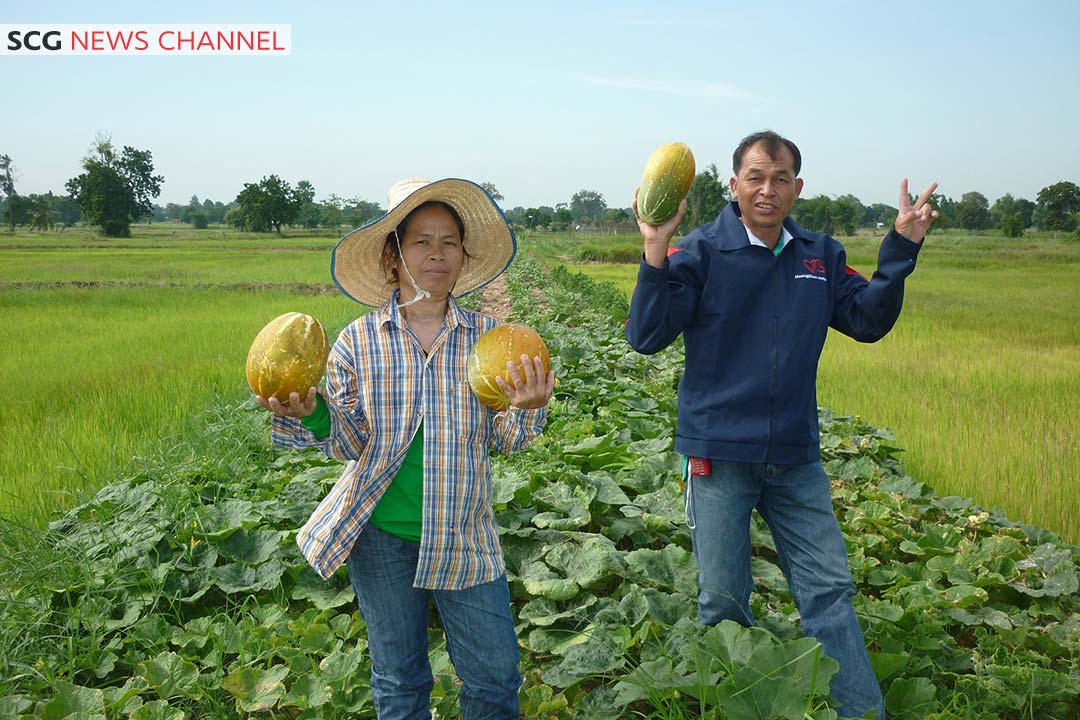As people around the world – including those in Thailand – are in a state of panic, stockpiling food, and staying indoors to protect themselves against the COVID-19 virus that has taken the lives of citizens across the globe, the danger from the disease cannot compete against the economic problems of people. Therefore, during this outbreak, a large number of workers has migrated back to their hometowns in order to avoid falling into poverty.
According to a survey conducted by Super Poll – an institute that carries out surveys on the happiness of communities – among agriculturalists on the impact of the drought and of the COVID-19 virus, results demonstrated that 90.4 percent of agriculturalists are more afraid of the drought than of the COVID-19 virus.
“The Voice of Agriculturalists” reflected through the polls revealed a different perspective compared to the general panic towards the virus.
The reason behind the sentiment is due to the severity of the drought that is much more closely related to the way of life of Thai farmers compared to the COVID-19 virus. Moreover, damages concerning agricultural crops will lead to further problems in the manufacturing process of the agricultural sector, a sector which is the main source of food, income, and stability of Thai people. While the public sector is tackling the spread of the disease, agriculturalists are also asking the government to help assist them with issues relating to drought in order to protect the livelihood of farmers and the source of food of Thai people in a sustainable manner.
Once communities can securely produce agricultural crops, workers who have returned to their hometowns from cities where the COVID-19 virus are spreading will have more choices regarding food and occupation, while they can also live with their families and work towards happiness on the path to sufficiency in the community.
This is how Thai farmers can survive in the face of the “drought” and “COVID-19” virus.
The case study regarding the water management method of the “Pa Phu Tam Phu Kratae Community in Waeng Noi Subdistrict, Khon Kaen Province”, a model community which is part of the “SCG Helps 108 Communities to Overcome the Drought Crisis” project, has demonstrated that after the community received training on managing water resources in the highlands from the Utokapat Foundation under Royal Patronage of H.M. the King and the Hydro – Informatics Institute, locals were able to store water for community use as well as rehabilitate and conserve over 2,800 rai of forest area, resulting in more green spaces that now serve as a source of food for the community.
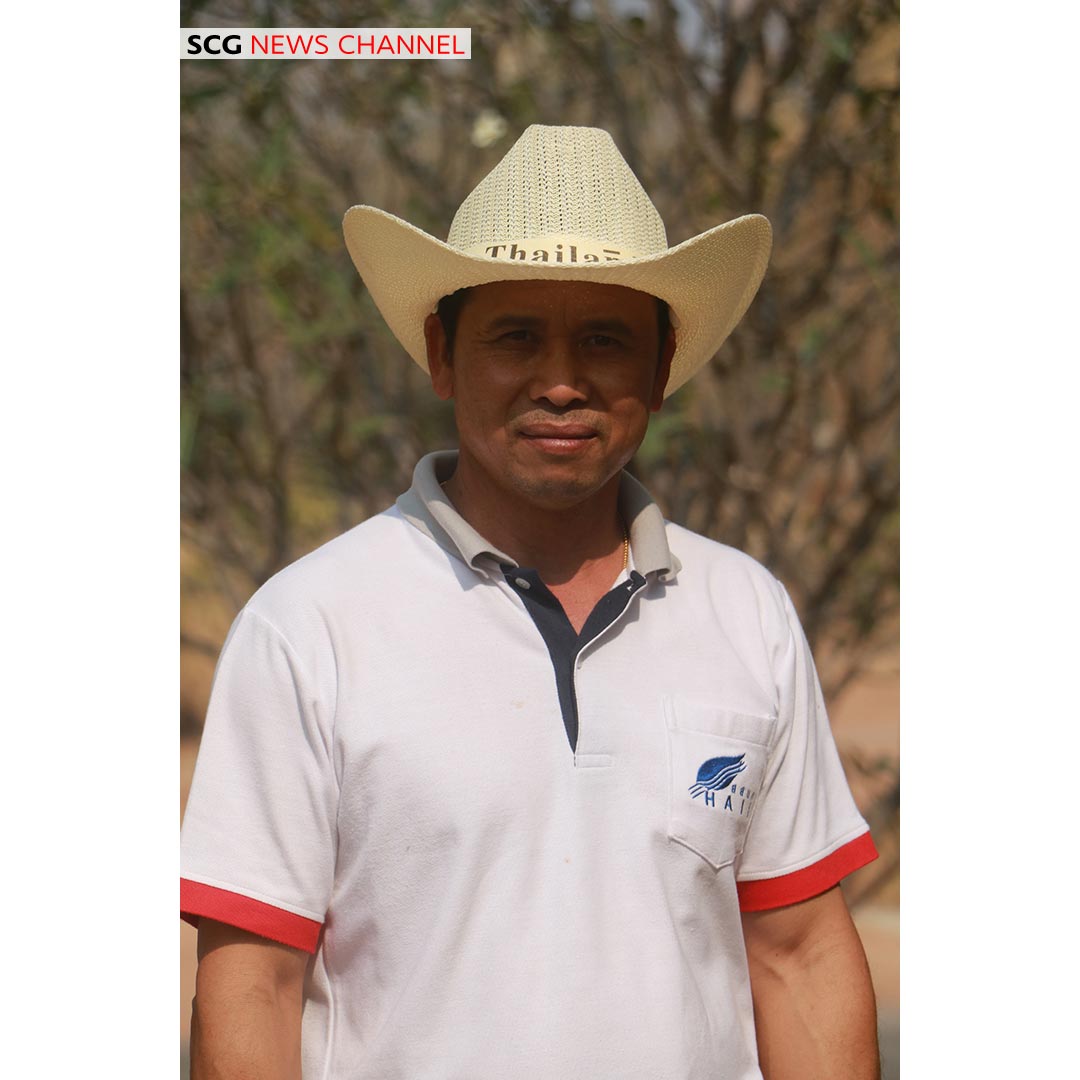
Pichan Tippawong, Member of the Pa Phu Tam Phu Kratae Community Water Management Committee, talked about his way of life growing up in one of the driest places in the country. “Mostly we would get two years of good rain and four years of drought. Thus, for the past 40 years, the community faced both droughts and floods in rotation. During the driest periods, over 300 people in the village would have to line up to bath from the same well. Meanwhile, to find drinking water, we would have to wake up at 2 or 3 am to fetch water at another shallow well near Pa Phu Tam. At the end of the harvest season when the water is gone, young people in the village would travel away to become merchants or workers in other places: some would even work in the fishing industry, and others would work in construction in Bangkok. There are rarely any occasions for the family to get together except during the holiday season such as New Year’s, Songkran, and at the beginning and the end of Buddhist Lent.”
“Storing Two Years’ Worth of Rainwater to Last Through Four Years of Drought”
The Changing Point that Led the Community to Manage Water Resources Instead of Waiting for Help
“We had an opportunity to meet Dr. Royol Chitradon from the Hydro – Informatics Institute, and he asked us questions that led us to think and learn. In the past, us villagers would ask for help from various agencies and would often take a stance against projects. Dr. Royol posed the question that if we think that what we have is not good enough, how can we fix these issues. Therefore, the community got together to seek a way to store two years’ worth of water to last through four years of drought.”
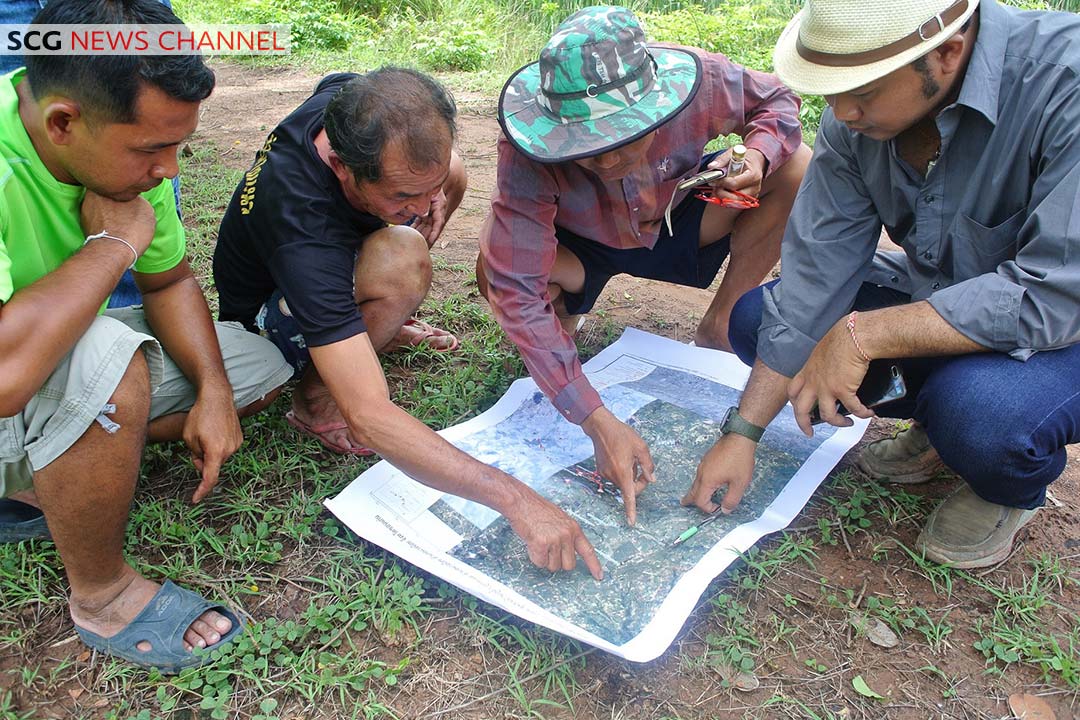
After that, the community surveyed the area and discovered that though they receive rainfall, there is no place to store the water. Thus, they initiated the project to manage and store water in the highlands by trapping water and controlling the water flow by digging water banks on agricultural land to serve as a water source for the rice fields, then, the community learned how to manage the land according to the New Theory Agriculture that allowed them to grow various crops.
“After we discovered how to manage the land according to the New Theory Agriculture, we were able to grow a variety of crops, from pak whan, galangal, lemongrass, lime, guava, papaya, melon, pumpkin, to other local crops that utilize little water and can be harvested seasonally. This initiative allowed farmers who had moved away to work to return to their own land and enjoy an abundant source of food. Their income also increased four times from the past: from 30,000-50,000 baht per year, to 12,000 baht per year, while their food costs dropped by over 3,000 baht per month, which allowed us to survive through the drought today.”
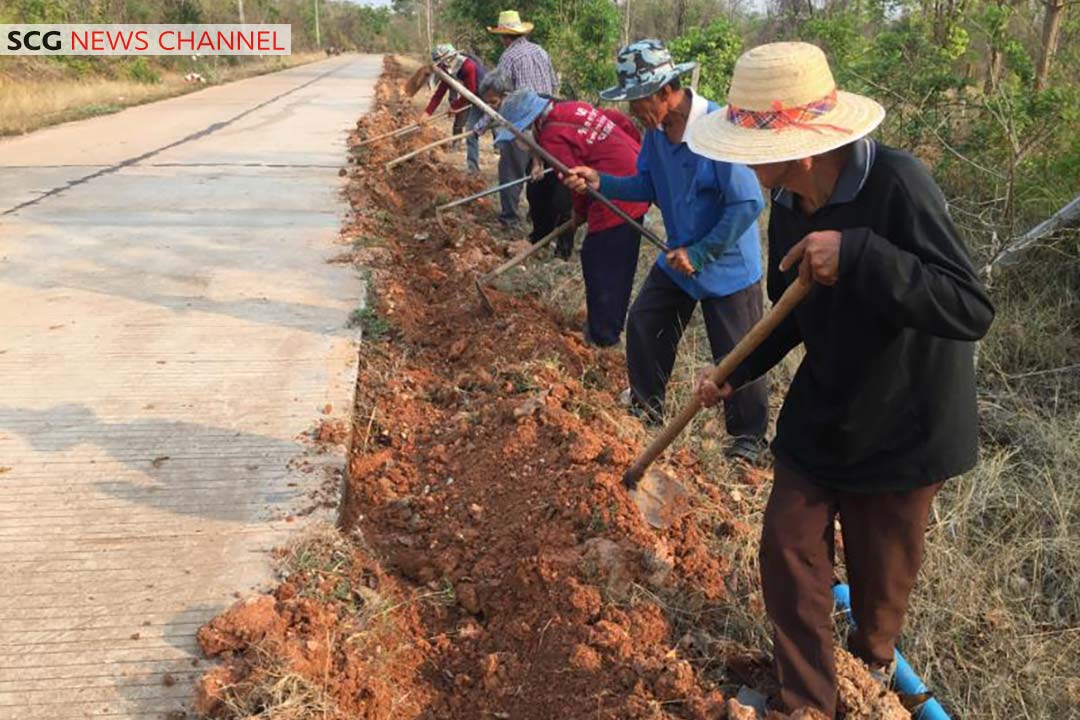
The Community’s Initiative and Harmony in Water Management
Led to Security in Water, Food, Economy, and Natural Resources
Pichan added that once the community started to manage their water resources, they were able to store up to 100,000 cubic meters of water, which is enough for 4-5 years of usage despite droughts. The community can now claim that it has security in water, food, economy, and natural resources, all of which enabled locals to stay in the hometown and have no need to seek jobs in the capital or in other provinces. Moreover, agriculturalists in Waeng Noi Subdistrict adopted the New Theory Agriculture, which allowed 68 households to increase their income by 3-4 times, or at least 12 million baht per year.
“For those in communities that have yet to manage their own resources, they should not wait for others to help fix their problems. When water is life and we all depend on water to survive, we must learn together how to survive the drought in 2020 by engaging everyone in the community to participate in water management. If we do so, we will have water to use during the drought, we will generate more income, and we will not have to seek work in the cities. Even during the drought, our forests will remain green.”
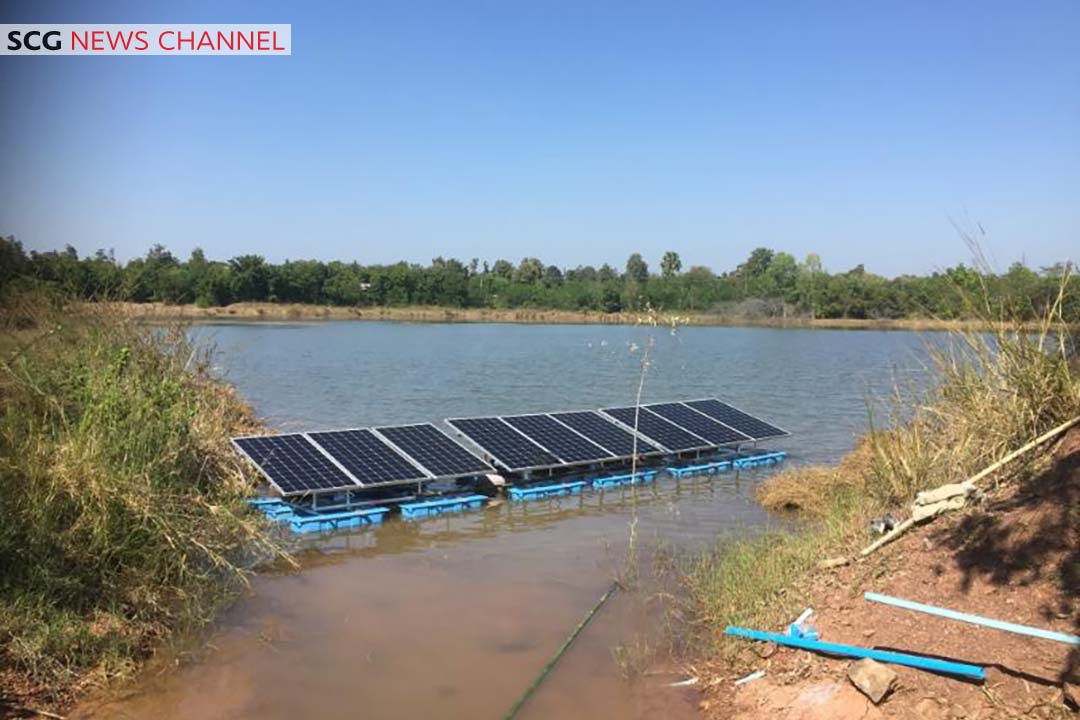
“Sufficiency Economy”: The Way towards Self-Reliance and Self-Learning
Sustainable Development That Needs No Outside Help
“By adopting the teachings of His Majesty King Rama IX, we have learned that this method that he has demonstrated to us all through his life can enable people to learn and develop themselves on the path towards sustainability. Together we can achieve great things by ourselves. Because water is life, we should not wait to receive help from others. We should all learn how to survive through the drought by ourselves.”
This is one example of the communities participating in the “SCG Helps 108 Communities to Overcome the Drought Crisis” project that have discovered a way to protect themselves in the face of crises, from the “COVID-19” virus to the “drought”. Here, the locals of “Pa Phu Tam Phu Kratae Community in Waeng Noi Subdistrict, Khon Kaen Province” have established security in their own natural resources by growing their own food, creating their own jobs and generating income in order to strengthen the community and seek happiness on the path towards sufficiency. Most importantly, they are ready to “give back” to other societies along the Chi River Basin by showing them how to succeed in water management.
